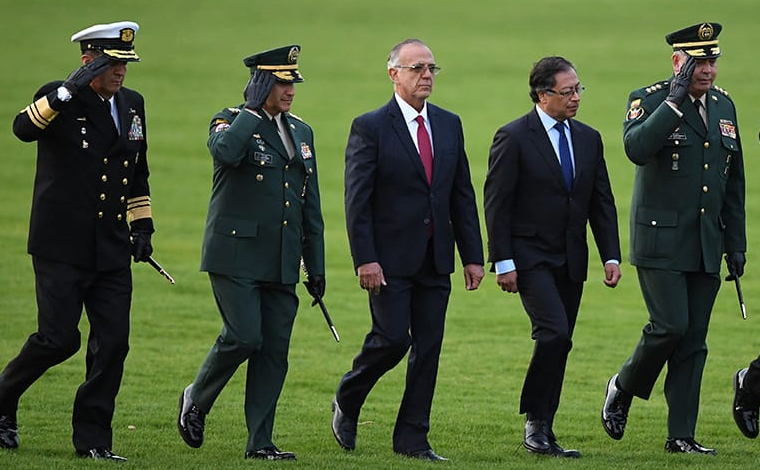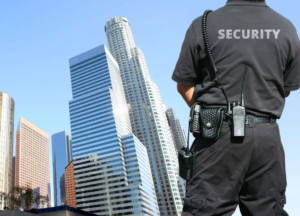Integrating ex-military officers into civilian security roles

In recent years, the trend of recruiting ex-military officers into civilian security roles has seen a significant upswing. These individuals bring a wealth of experience, discipline, and skills highly valued in the security sector for armed security guards. However, transitioning from military to civilian employment is not without its challenges. This article delves into ex-military officers’ potential hurdles when adjusting to civilian security roles. It explores strategies that security companies can employ to facilitate a smooth transition. Key focus areas include cultural adaptation, communication styles, and the importance of ongoing training and professional development.

Contents
Challenges Faced by Ex-Military Officers
Cultural Differences
The shift from a military to a civilian work environment often presents the first major hurdle for ex-military officers. The military is known for its strict hierarchy, regimented structure, and transparent chain of command. In contrast, civilian security guards‘ roles may offer a more relaxed atmosphere, where decision-making processes and team dynamics differ markedly. This discrepancy can lead to disorientation and frustration among newly transitioned military personnel.
Adjustment to Civilian Security Protocols
Another significant challenge is adapting to the civilian security sector’s operational protocols. Rules of engagement, use of force, and overall mission objectives in civilian roles vastly differ from those in military contexts. For example, many civilian security jobs emphasize de-escalation and avoiding confrontation, a departure from the more direct approaches often used in military operations.
Communication Style
The transition also involves adapting to different communication styles. Military communication is characterized by jargon, brevity, and a command-based approach. In contrast, civilian workplaces value open dialogue, negotiation, and a less formal communication style. Adjusting to this new way of interacting can be challenging for ex-military officers accustomed to the direct and structured communication of the armed forces.

Strategies for Integration
Orientation Programs
Comprehensive orientation programs are essential to bridge the gap between military and civilian security cultures. These sessions should cover the company’s culture, operational protocols, and the expectations placed on security personnel. An in-depth orientation helps ease the transition by setting clear guidelines and offering a structured introduction to the civilian security environment.
Mentorship Programs
Pairing ex-military officers with experienced civilian security personnel can be a highly effective strategy for easing integration. Mentors can provide guidance, support, and insights into navigating the nuances of civilian security work. This one-on-one relationship allows for personalized advice and fosters a sense of belonging among newly transitioned personnel.
Cross-Training
Cross-training initiatives can promote mutual learning and respect between ex-military officers and civilian security teams. These programs allow all team members to share knowledge, skills, and experiences, enhancing team cohesion and operational effectiveness. Cross-training not only helps ex-military officers adjust but also enriches the skill set of civilian personnel.
Cultural Adaptation and Communication
Cultural Sensitivity Training
Offering workshops focusing on understanding and appreciating the nuances of civilian workplace culture is crucial for fostering an inclusive environment. These training sessions should address workplace diversity, communication styles, and conflict resolution, helping ex-military officers navigate their new roles with greater empathy and understanding.
Effective Communication Workshops
Adapting to civilian communication styles requires deliberate effort and training. Workshops that emphasize clarity, empathy, and adaptability in communication can be invaluable. Such training helps ex-military personnel master civilian dialogue, ensuring they can interact effectively with colleagues, clients, and the public.
Importance of Ongoing Training and Professional Development
Skill Development
The security sector constantly evolves, with new technologies and legal considerations emerging regularly. Ongoing training in these areas ensures that all security personnel, including ex-military officers, remain at the forefront of industry standards and practices. Continuous skill development is essential for maintaining operational excellence and enhancing career prospects.
Professional Development Opportunities
Providing career growth and specialization avenues is vital for retaining talented security personnel. Opportunities to take on leadership roles or specialize in specific security domains can be particularly appealing for ex-military officers. Professional development programs benefit the individual and strengthen the company’s expertise and service quality.
Conclusion
Integrating ex-military officers into civilian security teams requires a multifaceted approach, addressing cultural adaptation, communication differences, and ongoing training. By implementing comprehensive orientation programs, mentorship, and continuous professional development, security companies can leverage ex-military personnel’s valuable skills and experiences. Such a thoughtful and supportive transition process benefits both individuals and the security sector, enhancing operational effectiveness and team cohesion.



